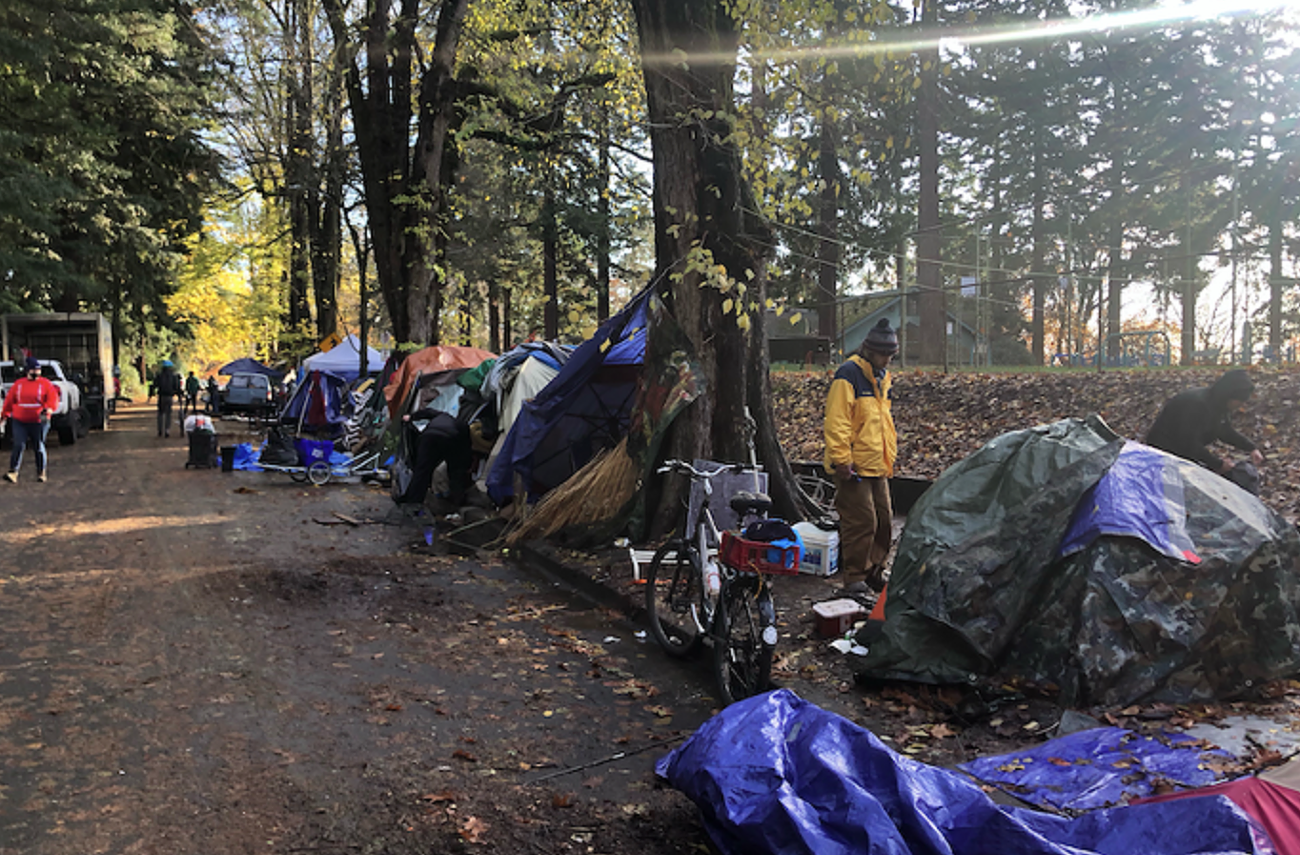A California-based shelter operator was awarded a five-year contract for up to $50 million to operate temporary, congregate shelter sites in Portland.
Urban Alchemy, the San Francisco-based provider that has garnered scrutiny for its management of shelters in California, was selected from two service providers that submitted proposals to the city.
The council voted unanimously Wednesday, April 19 to approve and award the contract.
Under the agreement, Urban Alchemy must provide staff on site at all hours, and monitor the surrounding area. The contract also calls for on-site showers, laundry, storage, meals and case management.
Language in the contract calls for at least a daily meal and snack, but city staff said they’re asking Urban Alchemy to provide two meals and a snack.
The city's budget office estimates the sites, which could include Safe Rest Villages, will cost $2.6 million to $5.1 million to operate, annually, not including capital or startup costs.
City data shows Portland’s homeless population has increased 50 percent from 2019, with 3,057 unhoused people accounted for in Portland in 2022.
Urban Alchemy will be required to collect and report data to the city on the people it serves, but it's unclear whether the organization will be held to any success metrics for transitioning people from shelter to housing.
Mayor Ted Wheeler was eager to answer city commissioners’ questions about the site, noting the city will receive support from Multnomah County, most likely in the form of behavioral health services, addiction treatment, and basic health services.
The mayor emphasized the operating costs are per bed or pod, not per person.
“This is a throughput model, so it’s not per person, it’s per pod,” Wheeler said. “The aspirational target is 90 days… it’ll probably be longer than that.”
The measure passed with no acrimony among commissioners, but public scrutiny of Urban Alchemy has preceded its arrival.
The organization, which started in 2018, focuses on hiring shelter employees with lived experience with addiction, homelessness, and/or criminal convictions. Its employees are tasked not only with monitoring the shelter sites they manage, but also the surrounding areas. That’s drawn concern over whether Urban Alchemy workers will become de facto, unlicensed security guards patrolling public spaces.
Many residents urged the council to slow down and investigate Urban Alchemy’s track record more carefully, accusing the company of “fudging the numbers” to inflate its success rate of helping people obtain housing.
Homeless advocates note very few people–just 9 out of roughly 200–found permanent housing after being swept from a large encampment in Los Angeles’s Echo Park Lake. Many of those swept were offered temporary shelter at an Urban Alchemy site.
Urban Alchemy has also faced accusations of underpaying its employees and skirting labor laws.
Rhea Hannon serves on a systemic change team with Sisters of the Road–a social justice organization well known for its barter cafe that previously operated in Portland’s Old Town neighborhood offering meals and community support to unhoused residents.
“We believe that this financial decision is an unsustainable and wasteful use of community resources,” Hannon said. “Sanctioning camps will not solve the housing crisis, nor will they make housing more affordable.”
Hannon, echoing a handful of other people who addressed the council Wednesday, questioned Urban Alchemy’s capacity to serve Portland’s homeless population.
“Before bringing an organization rife with controversy into our city, did you plan to invite anyone with lived experience to San Francisco to tour Urban Alchemy shelter sites…?” Hannon asked. “Why do our unhoused residents have to go through a more arduous process to prove they are ready for housing than Urban Alchemy had to go through to win this RFP?”
The Mercury reached out to Wheeler's staff with follow-up questions about the shelter model. Wheeler said plans for the temporary shelter sites were developed based on feedback from people living on the streets. Wheeler’s plan for mass temporary shelter sites has drawn repeated criticism for its cost, which rivals some new affordable housing developments. Wheeler said the city is still investing in housing, but many who are currently living on the streets aren’t ready to live on their own yet.
“This model was designed for a population of people who either do not want or are not ready to be stable in housing,” he said. “We don't know if it will work. But we believe based on the preponderance of information and evidence in what we're hearing from people who are homeless on our streets that this has a very good chance of being a successful model, and when I look at where we are today with almost 200 people dying on the streets …I'm sitting here going, ‘Why the hell wouldn't we try this?”



















